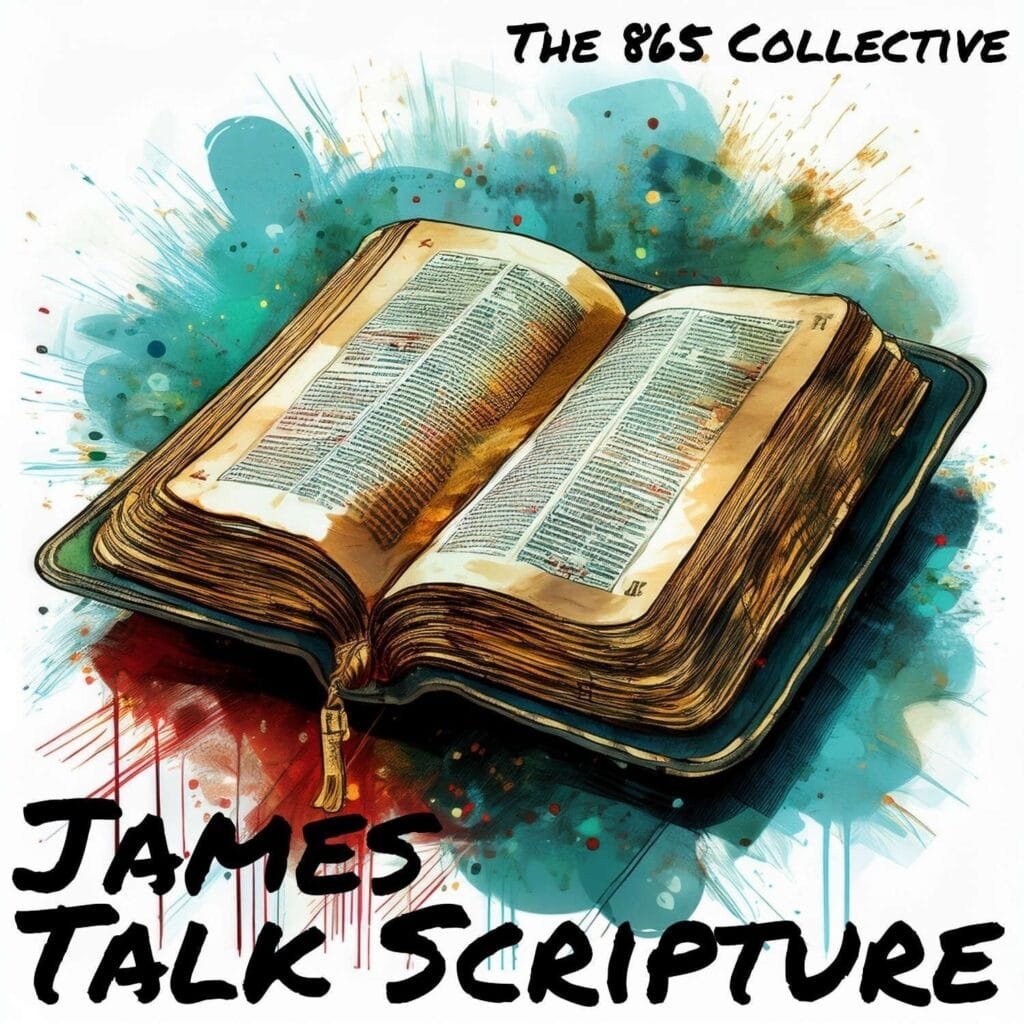“Lord willing.”
It’s a phrase my father-in-law, Larry, says often. You’ll hear him casually end conversations with things like, “See you all next week, Lord willing,” or, “We’ll talk to you later, Lord willing.” At first, I didn’t think much of it. But the more I heard it, the more I realized—he wasn’t just saying words.
Those three words carry deep intentionality. They’re a quiet, consistent reminder that every plan, every moment, is in God’s hands. It’s not just a polite phrase—it’s a powerful truth. It’s a way of saying, “This is the plan… but I know who’s really in charge.”
James, the brother of Jesus, gets straight to the heart of this in his letter. He paints a picture of someone confidently outlining their future—where they’ll go, what they’ll do, and how they’ll succeed. But the problem isn’t the planning itself. James isn’t anti-goals or anti-preparation. He’s not telling us to throw out our planners or cancel our retirement plans.
What he’s addressing is something deeper: the danger of leaving God out of the process.
When we make plans without acknowledging God’s sovereignty, we slip into arrogance. We start to believe the illusion that we’re in control. But James brings us back to reality with a striking image: life is a mist—here for a moment, then gone. We plan as though we own time, but we don’t even own our next breath.
That truth is sobering. Life is short. And while we know it intellectually, we often live like we’ve got all the time in the world.
It reminds me of Tim McGraw’s classic song, Live Like You Were Dying. It tells the story of a man who, after a serious diagnosis, decides to embrace every day—riding bulls, skydiving, loving deeper. It’s inspiring, and there’s value in that message. But at its core, it’s still centered on self—my experiences, my fulfillment.
But what if we lived like we were dying… with eternity in mind?
Suddenly, everything changes. It’s no longer about checking off bucket list items, but about asking, What am I doing right now that will matter beyond this life?
Living with eternity in mind isn’t about being somber or serious all the time—it’s about aligning our hearts with God’s purpose. It’s about living for what lasts. As Psalm 37:23 reminds us, “The steps of a man are established by the Lord, when he delights in His way.”
This means surrendering not just our five-year plan, but our next step. It means staying open to God interrupting our day. Sometimes the Spirit nudges us to speak, to act, to serve—and it’s not on the itinerary. But when we hold our plans too tightly, we risk missing what God is trying to do in and through us.
James doesn’t stop there. He delivers a tough reminder: “So whoever knows the right thing to do and fails to do it, for him it is sin.”
It’s easy to measure our faith by what we don’t do—avoiding sin, steering clear of temptation. But James flips that around. What about the good we are called to do? What about the opportunities to love, to serve, to be bold for Jesus?
Sometimes the sin isn’t in doing wrong—it’s in failing to do what’s right.
So, take a moment. What’s that one thing God’s been nudging you to do, but you’ve been putting it off? Maybe it’s a conversation you need to have. A step of faith you need to take. A burden you need to share.
Life is a collection of moments, and none of them are guaranteed. When our mist-like existence ends, what will we be found doing? Pursuing God? Loving people? Walking in the good works He prepared for us?
The weight of eternity should shape how we live today—not just in the big decisions, but in the quiet, daily acts of obedience. The conversations we have. The love we show. The boldness with which we follow Jesus.
So let’s not just say “Lord willing” with our words.
Let’s live like we mean it.
Let’s hold our plans loosely, our faith tightly, and our eyes fixed on what truly lasts.
“Come now, you who say, “Today or tomorrow we will go into such and such a town and spend a year there and trade and make a profit”— yet you do not know what tomorrow will bring. What is your life? For you are a mist that appears for a little time and then vanishes. Instead you ought to say, “If the Lord wills, we will live and do this or that.” As it is, you boast in your arrogance. All such boasting is evil. So whoever knows the right thing to do and fails to do it, for him it is sin.” James 4:13-17
ESV Study Bible. (2010). Crossway Books.
From Talk Scripture: God’s Plan, Not Mine | James 4:13-17
https://podcasts.apple.com/us/podcast/gods-plan-not-mine-james-4-13-17/id1786264764?i=1000696507871
This material may be protected by copyright.

